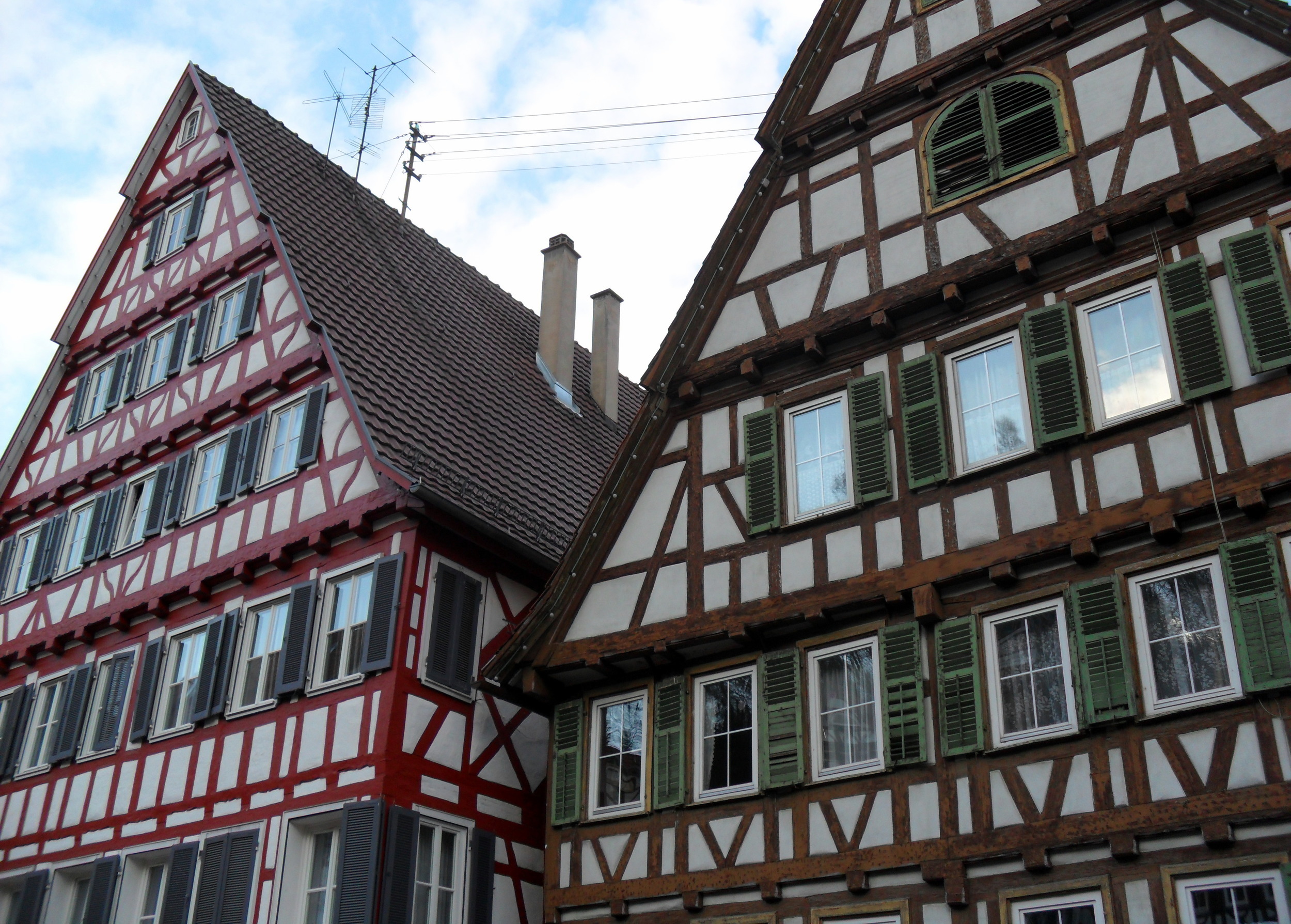Why You Should Care About German History
/It’s not unusual to think history is boring. When most of us remember our history classes, we remember memorizing dates, places, names, and not much else. (Few of us were lucky to have history teachers as fun and amazing as my mother-in-law, Lauren!) Maybe it’s because we’re a relatively “new” country, but American culture just doesn't seem to have built-in appreciation for history, especially when going beyond the familiar confines of American history from the Mayflower to Vietnam.
And I’ll be honest, when I moved to Germany, my knowledge of European history was pretty damn limited. I’d had a brief fascination with Eleanor of Aquitaine as a teen (what, I’m a nerd!) and a similar obsession with Elizabethan England due to working at a Renaissance Faire (see early parentheses) but when I moved to Germany, I knew almost nothing about German history except, you know, Nazis.
Oh look, another fachwerk house...
But when you live in Germany, you start hearing about all these amazing places to travel. Esslingen! Tubingen! Heidelberg! Rothenburg! Weil der Stadt! Herrenberg! And so on. The sad secret is that they quickly all begin to blend together. Oh, there’s the marktplatz. Hey, it’s yet another half-timbered house. Over there is the gothic church. Even ancient castles start to become a bit of a snore.
You find yourself feeling guilty - you’re surrounded by art, architecture, and really old buildings that initially thrilled you, and now you just really don’t care if you ever see another old city wall.
And this, my fellow expats, is why you need history.
History is what makes every charming village unique, and every cathedral meaningful. History is how you place these buildings and villages in context, which opens up a rich and fascinating world to explore.
You thought the Red Wedding was brutal? Try learning about the Blood Court at Canstatt!
If you like the drama and intrigue of Game of Thrones, you’d be well served to learn about the politics of the Holy Roman Empire, which George R. R. Martin drew much inspiration from when crafting his stories about conniving queens, bastard kings, murder and war. Sure, there’s no dragons, but the real drama of history iis better than reality television - if you give it a chance.
Esslingen, while exceptionally pretty (even amongst other old German towns that survived the bombing raids of WWII), becomes that much more fascinating when you learn that for most of its history, it was a Free Imperial City, like Nurnberg and Regensburg. While it seems small and quaint today, during its heyday it was far more important and powerful than Stuttgart, and the militias from the town even destroyed the nearby ancestral castle of the Wurttemberg family in the 12th century.
And it’s not just the older history that’s fascinating and will lend meaning to your explorations. Stuttgart’s beautiful Alte Schloss becomes much more poignant when you consider that it was the childhood home of the Von Stauffenberg brothers, who were brutally executed for conspiring against Hitler.
Where's my Heine fangirls at?!?
This isn’t to say everyone can develop a fascination with any aspect of history. We’re all drawn to different things. My husband is kind of obsessed with Napoleon and his wars and I, well...yeah, not so much. Meanwhile my fascination with German-Jewish writers of the Romantic era has yet to enthrall him. But there is probably some aspect of German history - be it a period of time (Celts! Romans! Second Reich!) or a general focus (warfare! music! religion!) - that will interest you, and once you really dive in, you’ll realize that you’re surrounded by fascinating stories right in your own backyard.
Just learning a little bit about both local and German history is addictive, partially because it is so wide-reaching and complex. A great start are my city walking tours in Stuttgart, which focus on over 1,000 years of fascinating and sometimes bloody history right beneath our feet. Beyond Stuttgart, there’s a lot of great books and information online. Here’s a few resources to get you started:
- Wikiepdia.com AND Wikipedia.de - While not an academic resource, the crowd-sourced online encyclopedia offers a great introduction to historical personages, battles, and general overviews of important historical events. If you find that Wikipedia.com isn’t satisfying your desire for specific local knowledge, try the German site instead, using a browser like Chrome that can automatically translate the text.
- Germania by Simon Winder - a hilarious, entertaining account of one Englishman’s travels through modern Germany, with a lot of good historical knowledge thrown in. A must for any expat.
- Millenium: The End of the World and the Forging of Christianity by Tom Holand - The first book that made me really interested in the Holy Roman Empire. Totally engrossing.
- The Three Emperors: Three Cousins, Three Empires, and the Road to World War One by Miranda Carter - Immensely readable, strangely humorous (turns out emperors and kings can be pretty weird) and extremely helpful in understanding the strange politics of an increasingly obsolete nobility at the dawn of a new age. Highly recommended.
- Anything by Barbara Tuchman. Most famously, Guns of August is considered such a definitive account on the lead up to World War One that John F. Kennedy made it required reading with his staff. She has other books on European history as well.
- In the Garden of Beasts: Love, Terror, and an American Family in Hitler’s Berlin by Erik Larson - A history book that reads like a gripping novel. The author is also famous for “Devil in the White City.” Seriously, read this book before your next trip to Berlin.
- Adolf Hitler: The Definitive Biography by John Toland - If you have any interest in World War II, this book is essential. It’s huge, but worth it.


